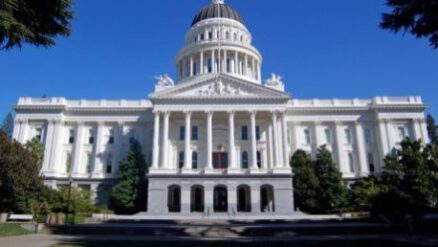This bill is part of the 2025 Cannabis Bills section of our ongoing update on California Cannabis Legislation – see the full California Cannabis Law Legislative Update which includes information on cannabis bills from prior years.
AB 1103 Controlled substances: research.
Existing law, the California Uniform Controlled Substances Act, classifies controlled substances into 5 designated schedules, with the most restrictive limitations generally placed on controlled substances classified in Schedule I, and the least restrictive limitations generally placed on controlled substances classified in Schedule V. Existing law creates a Research Advisory Panel, as specified, to conduct hearings on, and in other ways study, research projects concerning controlled substances. Existing law authorizes the panel to approve research projects that have been registered with the Attorney General concerning the nature and effects of cannabis or hallucinogenic drugs and the treatment of abuse of controlled substances. Existing law authorizes a person who, under federal law, is entitled to use controlled substances for the purpose of research, instruction, or analysis, to lawfully obtain and use those controlled substances upon approval by the panel, as specified.
This bill would revise and recast these provisions to require the panel to review research projects to be conducted in this state that require the administration of Schedule I or Schedule II controlled substances to human research subjects. The bill would require the panel to prioritize and expedite the review of projects that satisfy certain criteria, including, among others things, that have sought or received certain federal approvals and have proof of independent peer review of the study, as described. The bill would authorize the chairperson of the panel to assign 2 or more panel members to review the research project and to approve it, without a vote by the entire panel. The bill would authorize the panel to withdraw its approval of a research project only under specified circumstances and would require the panel to provide notice and time for the concern to be cured by the project before withdrawing its approval.
Existing law, the Bagley-Keene Open Meeting Act, requires, with specified exceptions, that all meetings of a state body be open and public and all persons be permitted to attend. Existing law, until January 1, 2027, authorizes the Research Advisory Panel to hold closed sessions for the purpose of discussing, reviewing, and approving research projects that contain sensitive and confidential information, including trade secrets, intellectual property, or proprietary information in its possession, the public disclosure of which is prohibited by law.
This bill would extend the authorization to hold closed sessions to January 1, 2029.
Existing constitutional provisions require that a statute that limits the right of access to the meetings of public bodies or the writings of public officials and agencies be adopted with findings demonstrating the interest protected by the limitation and the need for protecting that interest.
This bill would make legislative findings to that effect.
Read more about California Cannabis Legislation – see the full California Cannabis Law Legislative Update.
Contact us by phone or email to learn more about California cannabis law including state, county or city cannabis licensing and cannabis regulations, cannabis regulatory compliance, and cannabis litigation.

